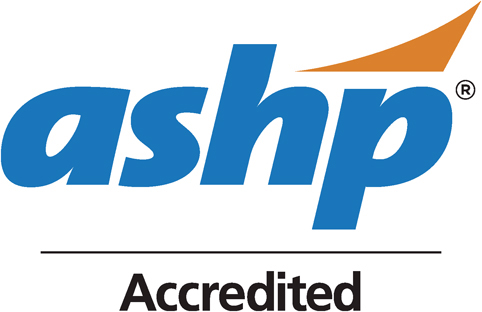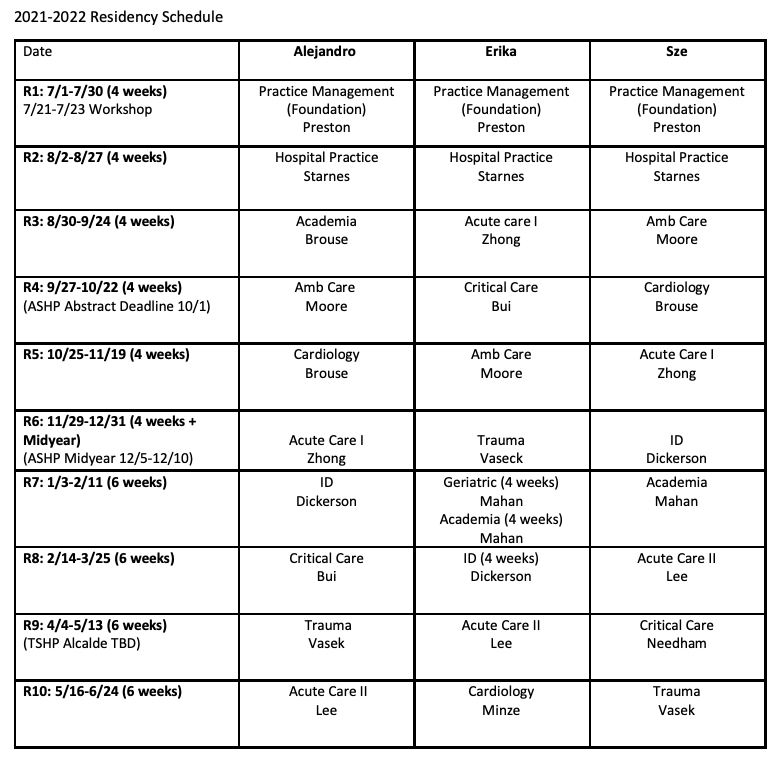PGY1 Pharmacy, Hendrick Health System - Abilene
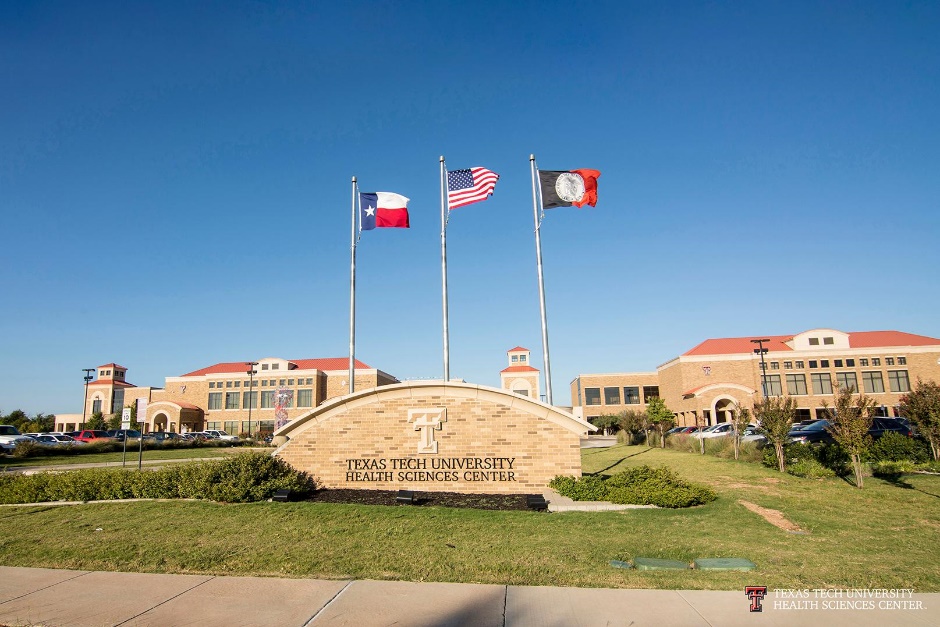
This PGY1 Pharmacy Residency is accredited by ASHP. It is a one-year residency that is a joint program with Hendrick Medical Center and Texas Tech University Health Sciences Center Jerry H. Hodge School of Pharmacy in Abilene, Texas.
Introduction
This PGY1 Pharmacy Residency is a one-year residency that is a joint program with Hendrick Medical Center and Texas Tech University Health Sciences Center School of Pharmacy in Abilene, Texas. The residency offers a variety of practice rotations to meet the needs and interests of the resident. The residency is designed to provide the resident opportunities to strengthen a wide array of clinical skills in a variety of settings. The resident will become familiar with current clinical practices and initiatives in the inpatient setting and will participate in patient care experiences in chronic disease management, hospital practice, and pharmacy administration. Throughout the year, residents will enhance and refine skills by participating in patient care in a variety of settings, providing drug information and medication counseling, and providing education to students and patients. Residents work closely with resident preceptors to optimize medication regimens, minimize adverse events, and provide patient care. Residents are offered SIDP Antimicrobial Stewardship certification. Interdisciplinary experiences are integrated as residents work with nurses, physicians, and students from other disciplines. Residents gain academic experience by serving as preceptors to pharmacy students, teaching in student classes and laboratories, and by participating Teaching Certificate Program. In addition, residents are offered academic appointment during their residency year. Residents attend the annual ALCALDE Southwest Leadership Conference for pharmacy residents, fellows, and preceptors. At the ALCALDE Conference, residents highlight their research project, which is conducted during their residency year. Additionally, at the annual American Society of Health-System Pharmacists (ASHP) Midyear Clinical Meeting, residents present posters showcasing their research and assist with resident recruitment.
Purpose
PGY1 pharmacy residency programs build on Doctor of Pharmacy (Pharm.D.) education and outcomes to contribute to the development of clinical pharmacists responsible for medication-related care of patients with a wide range of conditions, eligible for board certification, and eligible for postgraduate year two (PGY2) pharmacy residency training.
Acute Care: Acute Care is a required, four to eight-week learning experience at Hendrick Medical Center (Hendrick). The resident will work directly with the preceptor, who will be an inpatient clinical pharmacist. Patient discussions with the preceptor will be conducted at the direction of each individual preceptor.
The structure of this experience will involve learning and performing pharmaceutical care activities for assigned nursing floors. Residents will round with preceptor to discuss consults and present patients. Interventions identified by the resident will be discussed with the preceptor and presented during rounds.
The duties assigned to the resident will focus on mastering the role of the clinical pharmacist in the acute care setting; regardless of the patient age, disposition, or location within the hospital. Through utilization of available resources and tools, the pharmacy practice resident is responsible for identifying and resolving medication therapy-related issues for patients and will work toward assuming care of all patients assigned to the specific patient care team throughout the learning experience. The resident will utilize available tools, such as Sentri7, to accomplish this role. Additionally, the resident will utilize tools, such as Quantifi, to document all clinical pharmacy activities each day. Monthly reports will be generated for the resident to document fiscal value to Hendrick.
Residents will be introduced to precepting during this learning experience. Excellent communication and interpersonal skills are vital to the success of this experience. Ability to work in a team environment is essential for rounding. Good time management skills will be needed, and refined, throughout this experience. The resident must devise efficient strategies to accomplish the required activities, including required patient reviews, in a limited time frame.
Ambulatory Care: This rotation is a 4-6 week learning experience within PGY1 residency training. The resident will have the opportunity to work directly with at least two clinical pharmacists during the rotation.
Ambulatory Care is the health care of patients who are ambulatory in nature and who receive health care in an outpatient primary care clinical setting. In conjunction with Hendrick Medical Center, the Hendrick Professional Pharmacy initiated a program in July of 2014 that provides medications at a reduced cost to qualifying patients with diabetes, hypertension, hyperlipidemia, or COPD, provided that patients enroll in the Chronic Disease Management (CDM) program. To be enrolled, patients must commit to an initial 30-60 minute Medication Therapy Management (MTM) session and multiple phone follow-ups over the subsequent 3-4 months (the duration of the program). Often, these patients are recognized upon discharge from the hospital. Others are referred by their physician or by a pharmacist.
In August 2020, Hendrick started the Medication Management Clinic (MMC). This clinic allows pharmacists to manage diabetes, hypertension, hyperlipidemia, smoking cessation under collaborative practice agreements with physicians.
Hendrick outpatient pharmacists are also involved in the Hendrick Heart Failure Clinic. In this setting, the pharmacists perform medication reconciliation and speak to the patients about their medications.
The resident will be immersed in all aspects of the MMC and CDM program. Excellent oral and written communication skills are essential for this learning experience, to help provide quality care to a variety of patient populations and to build rapport with referring providers.
The resident will be expected to document all patient encounters in the patient's chart. Additionally, the resident will develop a monitoring plan for each patient. He/she will monitor the adherence rates of the patient's current drug regimen, and will suggest interventions when appropriate. The resident will utilize appropriate guidelines and literature when making recommendations.
Critical Care: Critical Care rotation is 4-6-week learning experience at a 24 bed critical care unit, Hendrick Medical Center (Hendrick). During this critical care rotation, residents will understand disease states and pharmacotherapy related to the critically ill patients. Residents will review every day medication profiles and identify pharmacotherapy interventions. Through the electronic system (Sentri7 and Quantifi), residents will document interventions under the supervision of the preceptor initially, then by themselves later. Residents will attend a multidisciplinary team rounding every day @ 8:30 A.M. and participate in the discussion actively. Residents will learn effective communication throughout the rotation and communicate, interact with other health care professionals regarding patient's medications and any related issues.
Infectious Disease: The Infectious Disease rotation is a 4-6 week required learning experience directed at providing care for patients with acute infectious disease processes while practicing antimicrobial stewardship. Residents participate as part of the Pharmacokinetic Consult Service and Antimicrobial Stewardship Program. The infectious disease team consists of the pharmacist and possibly a P4 Texas Tech School of Pharmacy student. Pharmacy Residents will be involved with reviewing and making appropriate recommendations for managing the drug therapy of all patients assigned to the resident. Identification of potential drug therapy problems, design and modification of drug regimens, therapeutic drug monitoring, provision of drug information, and patient counseling are core components of the rotation. Pharmacy residents will present one formal case study, lead case discussions multiple times per week to include pharmacotherapeutic care plans, answer a drug information question that relates to infectious diseases and follow the Antimicrobial Stewardship Rules as identified by the preceptor as minimum requirements of the infectious disease rotation. All interventions and recommendations will documented in Quantifi by the resident throughout the rotation.
Academia: The academia learning experience is an elective experience intended to expose the resident to the three components of academia—teaching, service, and scholarship—and prepare the resident for a career as a clinical faculty member. The resident will develop teaching skills through didactic teaching, precepting, facilitating small group discussions, and preparing and facilitating laboratory exercises. The resident will also gain experience in service and scholarship through patient care activities, attendance at committee meetings, and writing assignments. Additional emphasis will be placed on developing the teaching philosophy and learning to balance clinical and academic duties.
Cardiology: Cardiology rotation is an elective, 4-6 week learning experience for PGY1 Pharmacy Practice residents at Hendrick Medical Center Heart Failure Clinic and Cardiac Rehab clinic in Cedar Mall, 4th floor. Residents will attend daily clinic 5 days/week with a schedule of 7:30am-4:30pm (hours may vary based on patient care responsibilities). The multidisciplinary service is comprised of an attending physician, nurse practitioners, a physician's assistant, registered nurses, and a pharmacist. The purpose of the learning experience is to develop the resident's knowledge and skills in caring for patients with cardiac disease; in the heart failure clinic in particular, who may or may not be candidates for cardiac transplant or mechanical circulatory support, s/p implantation of LVAD (HeartWare, Heartmate II), cardiac transplantation, or who have suspected heart transplant rejection or other post-transplant complications. In cardia rehabilitation, the goal of the learning experience is to develop the resident's skills in caring for patients either newly diagnosed with cardiac disease or status post acute myocardial infarction or coronary artery bypass graft surgery. In addition, the rotation is designed to develop the resident's skills in designing and implementing care plans and patient education for patients in both an inpatient and outpatient setting. Residents will see patients discharged from Hendrick Medical Center daily in clinic.
Emergency Medicine: The emergency medicine rotation is designed to give the resident experience with the pharmacist's role in emergency medicine. The goal of this rotation is for the resident to develop knowledge and skills to provide pharmaceutical care to both critically ill and non-critically ill patients. Clinical pharmacy coverage is available in the Hendrick Emergency Department for 24 hours of the day. The Hendrick Medical Center Emergency Department is recognized by the Joint Commission and AHA/ASA as a Primary Stroke Center, is a Level 3 trauma center, and cares for a wide area throughout West Texas with over 50,000 patient visits/year.
Geriatrics: Geriatrics is an elective learning experience at Hendrick Medical Center's House Calls program which services approximately 150 home-bound patients. The pharmacy resident will be an integral member of the interdisciplinary team consisting of nursing, physical therapy, occupational therapy, social work, pharmacists, the patient and his/her primary care physician.
Throughout this rotation the pharmacy resident will work toward assuming the role of clinical pharmacist. This role includes: medication reconciliation across the continuum of care, identifying and resolving medication problems, and monitoring drug therapy outcomes. The resident will be expected to meet with patients in their home or by telephone to discuss medications and provide education as appropriate. An updated medication list will be completed in the EMR the day of the visit. Documentation of the patient encounter will be placed in the medical record within 48 hours. Other responsibilities will be learned and/or performed as time permits including: drug utilization review, falls risk assessment, drug information, and provision of staff in-services. The resident will attend weekly interdisciplinary care meetings.
Excellent verbal and written communication skills are of vital importance to success in this experience. Developing strategies for the timely completion of assigned activities within the rotation is crucial.
Pediatrics: General Pediatrics is a 4-6 week elective learning experience, which provides opportunity for the PGY1 resident to improve their knowledge base and pharmacotherapeutic skills while enhancing care for pediatric patients. The resident will begin to assume patient care responsibility and become familiar with the pathophysiology, pharmacology, and management of various disease states within the pediatric population through direct patient care, literature review, and topic discussion. The resident will also participate in the care of neonatal patients in the special care nursery.
The primary clinical site for the rotation is the Children's Hospital at Hendrick Medical Center.
The Children's Hospital provides acute medical care for the children of Abilene, Texas, and the surrounding areas of the Big Country. The hospital contains 20 general pediatric beds and three pediatric intensive care unit beds and treats a variety of pediatric illnesses. Pediatric trauma victims and children requiring specialty care may also be triaged at Hendrick Children's Hospital prior to transport to larger facilities. In addition, Hendrick Medical Center contains nursery facilities, including a special care nursery, which provides care to term and preterm neonates.
The pediatric clinical pharmacy specialist is responsible for ensuring safe and effective medication use for all patients in the pediatric and neonatal special care services through multidisciplinary collaboration with pediatric physicians; collaboration with other pharmacists and nurses to assure appropriate and timely medication delivery; education of patients, family members, and other healthcare professionals; education of trainees, including pharmacy and other allied healthcare students; participation in the management of medical emergencies; and participation in organizational, pharmacy department, and nursing unit-based medication policy and quality improvement initiatives.
The pharmacy resident will be responsible for identifying and resolving medication therapy issues for patients and will assume care of all patients on the service throughout the learning experience. Emphasis is placed on designing evidence-based therapeutic regimens and monitoring plans, as well as communication with other healthcare providers and improving time and task-management skills. The resident will provide and document pharmacotherapy consults for pediatric patients including, but not limited to, medication reconciliation, therapeutic drug monitoring, pain management, and nutritional management.
Nutrition: The nutrition learning experience is a 4-6 week rotation at Hendrick Medical Center. During this longitudinal rotation, residents will understand disease states and pharmacotherapy related to the needs of both parenteral and enteral nutrition. In the morning residents will collect and analyze patient information. Through the electronic system (Sentri7 and Quantifi), residents will design and redesign the therapeutic regimen and monitoring plan. During the afternoon they will ensure the implementation of the plan with appropriate follow-up action. They will act as a pharmacy leader through use of their clinical and professional skill set.
Residency Research Project: The residency project rotation is a required longitudinal experience. The RPD will provide a list of potential projects to residents. Residents may choose a project from such list or present a topic of interest for approval. Residents will work on their chosen project throughout the year, beginning with literature review in the area of interest, development of timelines, designing of the project, data collection, data analysis, and writing/formatting/submitting a manuscript. Residents will work with a TTUHSC or HMC preceptor to submit an application for IRB approval through TTUHSC which will also apply for IRB approval at Hendrick Medical Center. All residents will present research relating to their project by presenting a poster about their project at ASHP Mid-year, an oral presentation at Alcalde, a poster at TTUHSC SOP Research Days, and possibly for Residency Rounds.
Practice Management: Practice Management is a required learning experience for the pharmacy practice resident which will take place at Hendrick Medical Center (Hendrick). The learning experience will begin with a 4-week rotation followed by a longitudinal experience throughout the residency year. The resident will work directly with the preceptor, who will be the Director of Pharmacy.
During the learning experience, the resident will focus on practice management issues including: departmental management and operations, compliance with regulatory laws and accreditation standards, safety/quality, performance improvement, and medication use management. Responsibilities of the resident will coordinate with the selected goals and objectives of the learning experience as listed below in the learning activities. The pharmacy practice resident will be involved in the activities and duties of the director of pharmacy, such as attending committee meetings. The resident will become familiar with unique issues relating to the role of director of pharmacy, such as interdepartmental, leadership, change management, financial, and regulatory issues. The pharmacy resident will also participate in compliance and survey readiness regarding state pharmacy regulations, CMS conditions of participation, and Joint Commission standards, as well as adverse drug events surveillance, and performance improvement. Due to the longitudinal nature of the rotation, the resident will be responsible for effectively managing time in respect to other rotations.
Excellent communication, teamwork, professionalism, and interpersonal skills are vital to the success of this experience.
Hospital Practice: The Hospital Practice rotation is a longitudinal learning experience at Hendrick Medical Center which follows a 4-6 week rotation throughout the residency year. The resident will work directly with pharmacists, technicians and support staff to learn the workflow and daily required duties relating to drug distribution within an inpatient hospital setting.
The resident will gain experience in areas specific to hospital practice. The residents will learn how to interpret the appropriateness of an inpatient order and identify issues as well as communicate those issues with other disciplines and document those interventions. The resident will learn how to handle orders and requests from the OR staff as well. The resident will spend time in the IV room to learn workflow, processing of STAT IVs, TPNs, narcotic drips, chemo and epidurals. The resident will spend time working with the technicians to learn workflow such as the buying process, documenting controls, and working with automated dispensing machines, such as Pyxis. Such experience will include working with the carousel to learn where medications are stored, how correctly utilizing the carousel affects inventory, and the pros/cons of utilizing a carousel in the inpatient pharmacy. They will learn how incorporate procedural area orders in with the regular unit orders as well as managing time and prioritizing the orders. The resident will learn departmental policy and procedures for processing all medication orders, including chemotherapy, from receipt of the order to the verification of the final product. They will also participate in committees and supervise technicians.
Mentoring: The mentoring learning experience is intended to provide the resident with a mentor who will provide advice on professional and personal development throughout the entire residency year in supplement to support from the RPD. The preceptor will guide the resident on continuous professional development including practice, teaching/precepting, scholarship, and work/life balance. The mentor will expand on any noted areas for improvement from the quarterly plan from the RPD and ensure the resident is equipped to achieve their goals in the coming quarter and residency year. Further, the preceptor will attend meetings at the end of each rotation on behalf of the resident to discuss any needs or concerns with other preceptors and RPD.
Academic Teaching: Academic teaching is a longitudinal rotation that spans the duration of about 6-9 months. It encompasses both didactic, lab, problem-based learning, and experiential teaching (where possible). Teaching experiences may involve the three types of non-experiential instruction: classroom teaching, laboratory teaching, and small group teaching and experiential instruction in the clinical setting. Residents will serve as preceptors to third-year pharmacy students in the latter portion of their residency year (January or after). This aspect of teaching will be part of the Acute Care 2 learning experience and will be focused on practice-based teaching. As part of this experience, residents will deliver lectures, lead labs, facilitate small group learning, and precept. Residents will have opportunities to implement techniques and knowledge gained from the Teaching Certificate Program throughout this learning experience.
The Pharmacy Practice Department Chairs and Residency Programs Vice Chair will jointly determine the type and amount of teaching assigned to each resident. Residents will teach in their assigned courses and may, if opportunity presents, teach in additional courses that meet their specific interests. When feasible, residents will be given options regarding selection of some of their responsibilities (particularly as they relate to specific dates, additional lecture opportunities, etc.). Either the preceptor or the course faculty liaison to the preceptor (faculty member teaching concurrently in the same course) will directly observe and interact with the resident to ensure that duties are carried out as assigned and that both the resident and the students are achieving their respective goals.
 |
Young Ran Lee, Pharm.D., BCPS, BCCCP Dr. Young Ran Lee is an Associate Professor of the Division of Adult Medicine in the Department of Pharmacy Practice at Texas Tech University Health Sciences Center School of Pharmacy. After receiving her Pharm.D. degree from the Western University of Health Sciences College of Pharmacy in California, she completed a PGY1 Pharmacy Practice Residency at the University of Virginia Health System and a PGY2 Critical Care Residency at the Texas Tech University Health Sciences Center & North Texas VA Health System in Dallas, Texas. Dr. Lee is the PGY1 Pharmacy Residency Program Director and practices in the Critical Care Unit at Hendrick Medical Center, Abilene, TX. She teaches in the areas of Drug Information and infectious diseases and has precepted students and residents. Her research focus is on appropriate pharmacotherapy in special populations and anticoagulation managements. |
Sara Brouse, Pharm.D., FCCP, BCPS
Vi Bui, Pharm.D., BCPS, BCCCP
F Alison Capko, PharmD, BCACP
Lauren Dickerson PharmD, BCCCP, BCIDP
Young Lee, PharmD, BCPS, BCCCP, BCIDP
Becky Mahan, PharmD, BCGP, BCACP
Molly Minze, Pharm.D., BCACP
Shelby Needham, Pharm.D., BCCCP
Deborah Preston, R.Ph.
Nancy Starnes, R.Ph.
Koby Vasek, PharmD, BCPS
Rachel Moore, PharmD, BCACP, BC-ADM
Celine Zhong, Pharm.D.
Resident positions available: 2
Application deadline: January 3, 2022
NMS Code: 74003
Appointment: July 1, 2022 to June 30, 2023
Estimated annual salary: Approximately $48,000
Requirements: Applicants must have graduated from an accredited School of Pharmacy and either hold an active pharmacy license or be eligible for immediate licensure by the Texas State Board of Pharmacy. Application deadline is January 4, 2021. Qualified candidates will be contacted to schedule an onsite interview. Candidates will be required to consent in writing to undergo a background check prior to employment. Applicants MUST be tobacco free for at least 6 months prior to hire date to be eligible for employment.
How to apply: All Texas Tech University Health Sciences Center Jerry H. Hodge School of Pharmacy affiliated residency programs are participating in the Pharmacy Online Residency Centralized Application Service (PhORCAS). More information on PhORCAS can be found on the ASHP-PhORCAS webpage.
The components of the application include:
- Curriculum Vitae (CV)
- Letter of intent (describe your interest in the residency program and your professional goals and objectives)
- Three (3) letters of recommendation forms (located in PhORCAS)
- Official transcripts from all pharmacy education
Duration: 12 months
Starting Date: July 1, 2021
Number of Positions: 3
Total Beds: 564
Practice Setting: Community Hospital/Academia
Interview Required: Yes
Staffing Requirement: Eight hours per week plus one major and one minor holiday
Residents utilize the Resident Learning System
Teaching activities are assigned
Benefits:
- Medical Coverage: Standard
- Dental Coverage: Optional
- Vision Coverage: Optional
- Life Insurance: Standard with optional increased coverage
- Spouse Coverage: Optional
- Disability Coverage: Optional
- Holiday Leave: Hospital allotted holidays
- Vacation Leave: 10 days
- Professional Leave: 10 days
- Lab coats & business cards
- Access to drug information resources
- Society of ID Pharmacists Antimicrobial Stewardship Certificate (support registration fee)
- Teaching Certificate Program
- Assistance with travel and registration toward attending ASHP Midyear
- Others as needed
Residents completing a PGY1 with Hendrick Medical Center and Texas Tech University Health Sciences Center School of Pharmacy will be required to complete all of the following to be considered as having completed the program:
- Complete orientation and all intake paperwork for the TTUHSC School of Pharmacy and the practice site.
- All clinical practice requirements will be completed as per the residency program requirements, including:
- All required program assessments to be completed in a timely manner
- Achievement of 100% of all required ASHP goals and 80% achievement of all elected goals for the residency program
- All practice staffing requirements as described above
- Designated teaching activities
- The major resident project will be completed and a manuscript of publishable quality will be submitted to the Program Director.
- All IRB submission and close-out requirements will be completed, including CITI training
- Provide a verbal presentation of the research project at the ALCALDE meeting or other professional meeting and TTUHSC
- Research Days (if required)
- Present a research poster at ASHP and TTUHSC Research Days or another meeting as approved
- Submit an approved, finalized manuscript for publication in a peer reviewed journal
- Completion of the Society of Infectious Disease Pharmacists Antimicrobial Stewardship Program
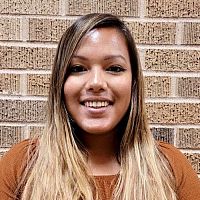 |
Erika Gutierrez, Pharm.D. PGY1 Pharmacy Resident Email: Erika.Gutierrez@ttuhsc.edu Residency Program: About Erika: Professional interests: Personal interests outside of the residency program: |
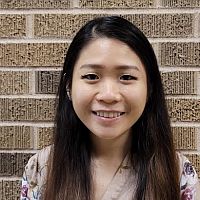 |
Sze Yi Kong, Pharm.D. PGY1 Pharmacy Resident Email: Sze-Yi.Kong@ttuhsc.edu Residency Program: About Sze Yi: Professional interests: Personal interests outside of the residency program: |
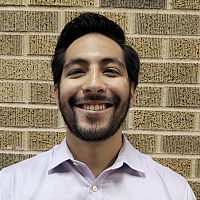 |
Alejandro Urueta, Pharm.D. PGY1 Pharmacy Resident Email: Alejandro.Urueta@ttuhsc.edu Residency Program: About Alejandro: Professional interests: Personal interests outside of the residency program: |
View full list of former TTUHSC SOP/Hendrick Medical Center PGY1 Pharmacy Residents (PDF)
 |
Sheena Antony, Pharm.D. 2020-2021Sheena was born and raised in Houston, Texas and attended The University of Houston College of Pharmacy. She received her Doctor of Pharmacy degree in 2020. Resident Research Project: |
 |
Adam Hilgemeier, Pharm.D. 2020-2021Adam was born and raised in Midland, Texas and received his undergraduate in technical writing from the University of North Texas. He attended business and pharmacy school through Texas Tech, and he received his Master of Business Administration in 2019 and his Doctor of Pharmacy in 2020. Resident Research Project: |
 |
Lincoln Riley, Pharm.D. 2020-2021Lincoln was born and raised in Sherwood, Arkansas and attended Hendrix College for undergraduate studies before matriculating into Texas Tech University Health Sciences Center School of Pharmacy. He received his Doctor of Pharmacy degree in 2020. Resident Research Project: |
 |
Matthew Mohr, Pharm.D. 2020-2021Matthew was born and raised in San Antonio, TX and attended Texas A&M University for his undergraduate studies before matriculating into The University of Texas at Austin College of Pharmacy. He received his Doctor of Pharmacy degree in 2020. Resident Research Project: |
 |
Jacqueline Hobbs, Pharm.D. 2019-2020Jackie is from San Antonio, Texas. She completed her Undergraduate studies at Northwest Vista College and earned her Doctor of Pharmacy at the University of the Incarnate Word Feik School of Pharmacy in May 2019. Her practice interests include infectious disease and cardiology, but she is still open to other practice options. Resident Research Project: |
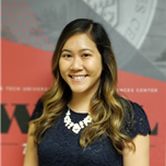 |
Hanh Kimberly Nguyen, Pharm.D. 2019-2020Kimberly Nguyen is originally from Port Arthur, Texas and received her Bachelor of Science in Biology at Lamar University. Dr. Nguyen completed her Doctor of Pharmacy at the University of Texas at Austin College of Pharmacy in May 2019. Her practice interests include ambulatory care, geriatrics, and transitions of care. Resident Research Project: |
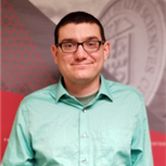 |
Pete Palmere, Pharm.D. 2019-2020Pete Palmere received his Bachelor of Science degree in Chemical Biology from the University of California, Berkeley, before moving to Abilene, where he completed his Doctor of Pharmacy degree at TTUHSC Jerry H. Hodge School of Pharmacy in May 2019. His current practice interests include oncology and infectious disease. Resident Research Project: |
 |
Young Ran Lee, Pharm.D., BCPS, BCCCP |

